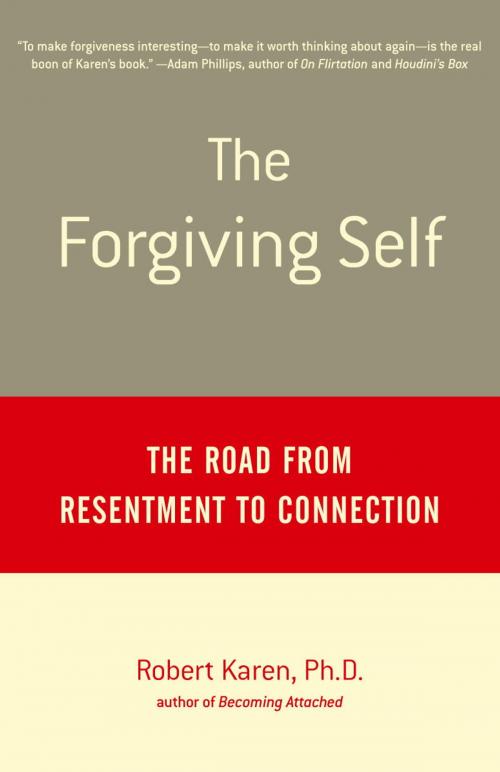The Forgiving Self
The Road from Resentment to Connection
Nonfiction, Health & Well Being, Psychology, Interpersonal Relations, Self Help, Mental Health, Happiness, Self Improvement, Motivational| Author: | Robert Karen, Ph.D. | ISBN: | 9780307765154 |
| Publisher: | Knopf Doubleday Publishing Group | Publication: | March 23, 2011 |
| Imprint: | Anchor | Language: | English |
| Author: | Robert Karen, Ph.D. |
| ISBN: | 9780307765154 |
| Publisher: | Knopf Doubleday Publishing Group |
| Publication: | March 23, 2011 |
| Imprint: | Anchor |
| Language: | English |
In this fascinating book about our struggle to forgive, psychologist and award-winning author Robert Karen uses movies, people in the news, and sessions from his practice to illuminate the conflict between our wish to repair our relationships on one side and our tendency to see ourselves as victims who want revenge on the other.
Why do we harden our hearts, even against those we want to love? Why do we find it so hard to admit being wrong? Why are the worst grudges the ones we hold against ourselves? When we nurse our resentments, Karen says, we are acting from an insecure aspect of the self that harbors unresolved pain from childhood. But we also have a forgiving self which is not compliant or fake, but rather the strongest, most loving part of who we are. Through it, we are able to voice anger without doing damage, to acknowledge our own part in what has gone wrong, to see the flaws in ourselves and others as part of our humanity.
Karen demonstrates how we can move beyond our feelings of being wronged without betraying our legitimate anger and need for repair. The forgiving self, when we are able to locate it, brings relief from compulsive self-hatred and bitterness, and allows for a re-emergence of love.
In this fascinating book about our struggle to forgive, psychologist and award-winning author Robert Karen uses movies, people in the news, and sessions from his practice to illuminate the conflict between our wish to repair our relationships on one side and our tendency to see ourselves as victims who want revenge on the other.
Why do we harden our hearts, even against those we want to love? Why do we find it so hard to admit being wrong? Why are the worst grudges the ones we hold against ourselves? When we nurse our resentments, Karen says, we are acting from an insecure aspect of the self that harbors unresolved pain from childhood. But we also have a forgiving self which is not compliant or fake, but rather the strongest, most loving part of who we are. Through it, we are able to voice anger without doing damage, to acknowledge our own part in what has gone wrong, to see the flaws in ourselves and others as part of our humanity.
Karen demonstrates how we can move beyond our feelings of being wronged without betraying our legitimate anger and need for repair. The forgiving self, when we are able to locate it, brings relief from compulsive self-hatred and bitterness, and allows for a re-emergence of love.















